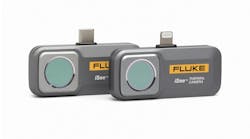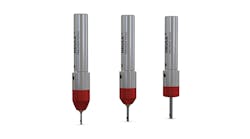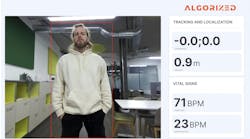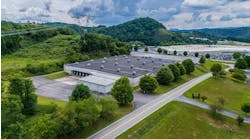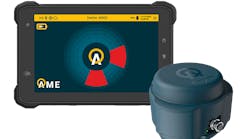Applying the concepts of lean manufacturing is a way of life in many industries, and especially among suppliers to the automotive industry. These manufacturers produce thousands, even millions, of parts with little part variety. This is known as low-mix, high-volume (LMHV) manufacturing.
The “lean” is the identification and elimination of waste in any and all manufacturing processes, in any production system. Waste is defined as those elements of the system that do not provide value to the customer.
According to Prof. Shahrukh Irani of Ohio State University, the workshop’s main lecturer, many of the tools, technologies, and processes designed to achieve “lean” with low-mix, high-volumemanufacturing are not well-suited to achieving lean manufacturing in forging job shops. That’s because they typically produce limited quantities of many different jobs in what is known as high-mix, low-volume (HMLV) manufacturing.
This is an important distinction for the Defense Logistics Agency (DLA), which supplies the U.S. military and several civilian agencies with critical resources to accomplish their missions. Among its responsibilities, the DLA acquires forgings for replacement parts for aging weapon systems.
To develop ways to shorten the lead times required to produce HMLV forgings, and to lower their costs, the DLA joined with the Forging Industry Assn. to form the Forging Defense Manufacturing Consortium (FDMC). The Advanced Technology Institute, a private, nonprofit consortia-management company, administers activities of the FDMC.
Since early in 2001, the DLA, the FDMC, Ohio State University, and several forges have worked to develop and deploy Jobshop Lean, an approach to lean manufacturing that identifies and uses tools, technologies, and processes suited for custom forge shops, taking into account their fixed equipment installations and batch-oriented process layouts.
For front-line managers
The February 11 Jobshop Lean Workshop in Cleveland was designed to educate front-line managers about what can be achieved when the lean approach is properly applied. Registration was free, and all seats were quickly filled. To accommodate a second presentation was arranged (on Feb. 10) and that, too, was well attended.
Andrew Ulven, CEO of Ulven Forging, Hubbard, OR, gave the keynote presentation and discussed his company’s success with Jobshop Lean and its analysis software, PFAST (see p. 19.)
Prof. Irani reviewed the science of lean manufacturing for LMHV manufacturing and discussed why many of its precepts are not directly applicable to jobshop HMLV manufacturing. His answer to that problem: Jobshop Lean.
At the core of Jobshop Lean is PFAST — short for Production Flow Analysis Simplification Toolkit, an integrated library of algorithms derived from Graph Theory, Pattern Recognition, Multivariate Statistics, and Artificial Intelligence. This suite of algorithms provides a comprehensive material-flow analysis for any high-mix, low-volume jobshop.
Using input about the products, equipment, and processes of an HMLV facility, PFAST generates an analysis that provides a roadmap to implementing Jobshop Lean best practices, such as manufacturing cells, process standardization, process razing, flexible machine tools, etc. Built in to the analysis is the fact that some equipment in forges, such as presses or hammers, can’t be moved.
A contingent of nine people from Meadville Forging Co., Meadville, PA, attended the first workshop in Cleveland. Gary Hatton, plant manager, explains: “We have engaged in some lean manufacturing projects with the product for one particular customer. It was customer driven, and we have seen some pretty appreciable advantages in cost savings. This particular product is a high-volume product to which we could apply the standard concepts of lean. The concept of a job shop lean approach was what attracted us to this workshop.”
Another attendee was Richard Rookery, operations process manager for Green Bay Drop Forging, Green Bay, WI. He said, “The lure of the workshop was to find out how I can make lean manufacturing work with our immovable forging hammers and presses. I think Dr. Irani was very successful in accomplishing that, at least to the point where I could go back and start to apply concepts to my forging shop.”
Repeat performances
Dr. Irani will be involved in two additional Jobshop Lean Workshops. “I feel that the next two workshops can be improved, based on the evaluations we got from the first one,” he told Forging. “I am a firm believer in continuous improvement.”
Visit the FDMC website (http://fdmc.aticorp.org/) and check the calendar to read what is planned for the upcoming workshops, and to register your interest in receiving further information about workshop dates and places.
Doug Brown, Director of Forging Sales, Inductotherm Group, and president, Alpha 1 Induction Service Center, and Jon Tirpak, executive director, FDMC, contributed to this report.


